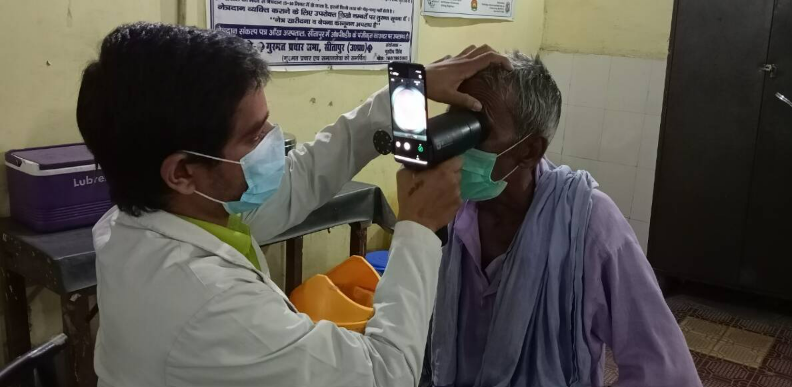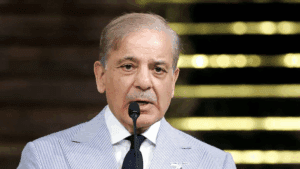South Korean tech giant Samsung believes a smartphone can improve access to quality healthcare and bring more awareness and improve knowledge on eye health in far-flung areas of the country.
Samsung’s simple solution is to convert older Galaxy smartphones to run the eyelike handheld fundus camera, which connects to a lens attachment to provide an enhanced fundus diagnosis. The device then uses an artificial intelligence (AI) system to process the images it receives and then sends them to an app that captures patient data and suggests the next course of action.

“The Galaxy upcycling programme not only gives a new life to some of our older Galaxy smartphones by repurposing them into useful devices but they can also be used as diagnoses cameras to screen patients for conditions like diabetic retinopathy, glaucoma and age-related macular degeneration,” Mohan Rao Goli, Corporate VP and CTO, Samsung Research Institute, Bengaluru (SRI-B), told indianexpress.com on the sidelines of World Sight Day.
The programme was first introduced by Samsung in South Korea in 2017. Since then, Samsung has expanded its Galaxy Upcycling programme to six countries, including India. The world’s top smartphone maker has partnered with the International Agency for the Prevention of Blindness (IAPB), Yonsei University Health System (YUHS) in Korea and LabSD for the Galaxy Upcycling programme.
“You connect the lens attachment for enhanced fundus diagnosis while the smartphone is used for capturing the images. The Galaxy device then utilises AI algorithms and analyses the images to diagnose ophthalmic diseases. The data captured by the phone then sync with the mobile app, which suggests if the patient needs any further treatment,” explained Goli.
In India, Samsung has partnered with Sitapur Eye Hospital in Uttar Pradesh, Aravind Eye Hospital in Puducherry, Guruhasti Chikitsalya in Jodhpur, Rajasthan, and Dr Shroff’s Charity Eye Hospital in New Delhi. As of now, the company has upcycled 200 units of second-hand Galaxy smartphones and distributed Eyelike fundus cameras to its partners in India. Samsung has set a target to screen 150,000 individuals in India for eye diseases using the Eyelike fundus cameras by the end of 2023.
“Repurposing old smartphones into medical diagnosis cameras is filling the missing link between the last man and the healthcare provider,” said Dr Madhu Bhadauria, CMO of Sitapur Eye Hospital, describing how a smartphone can help break these barriers and provide access to quality eye care to many more people in rural parts of the country at a fraction of cost. According to Bhadauria, the cost of conventional devices that take fundus images starts from Rs 10 lakh and goes up to Rs 60 lakh.
“A picture taken on a Samsung phone goes to a senior optometrist who’s in the speciality, one picture goes to the clinician and one picture goes to AI. At different levels, these pictures are being graded and then the final analysis will be done as to how effective the AI portion is,” Bhadauria explained. She said one week of training for a non-technical person is needed to understand how this smartphone-based fundus camera works.











More Stories
India’s Active Covid-19 Cases Rise Above 2,700; Delhi Records First Fatality
Pak PM: India Fired Brahmos Before Our Retaliation
देहरादून: सूर्यधार रोड पर भिड़ीं गाड़ियां, शख्स को कुचलने की कोशिश; 9 गिरफ्तार